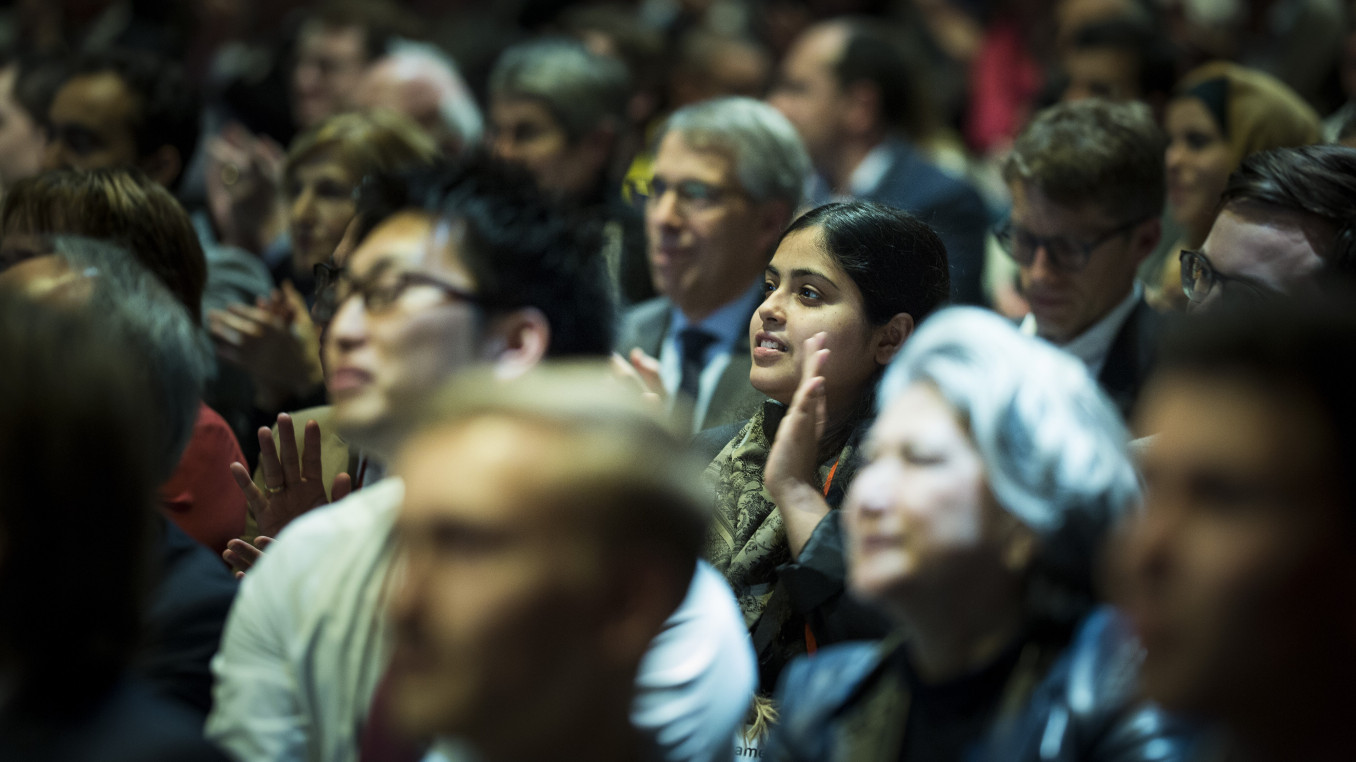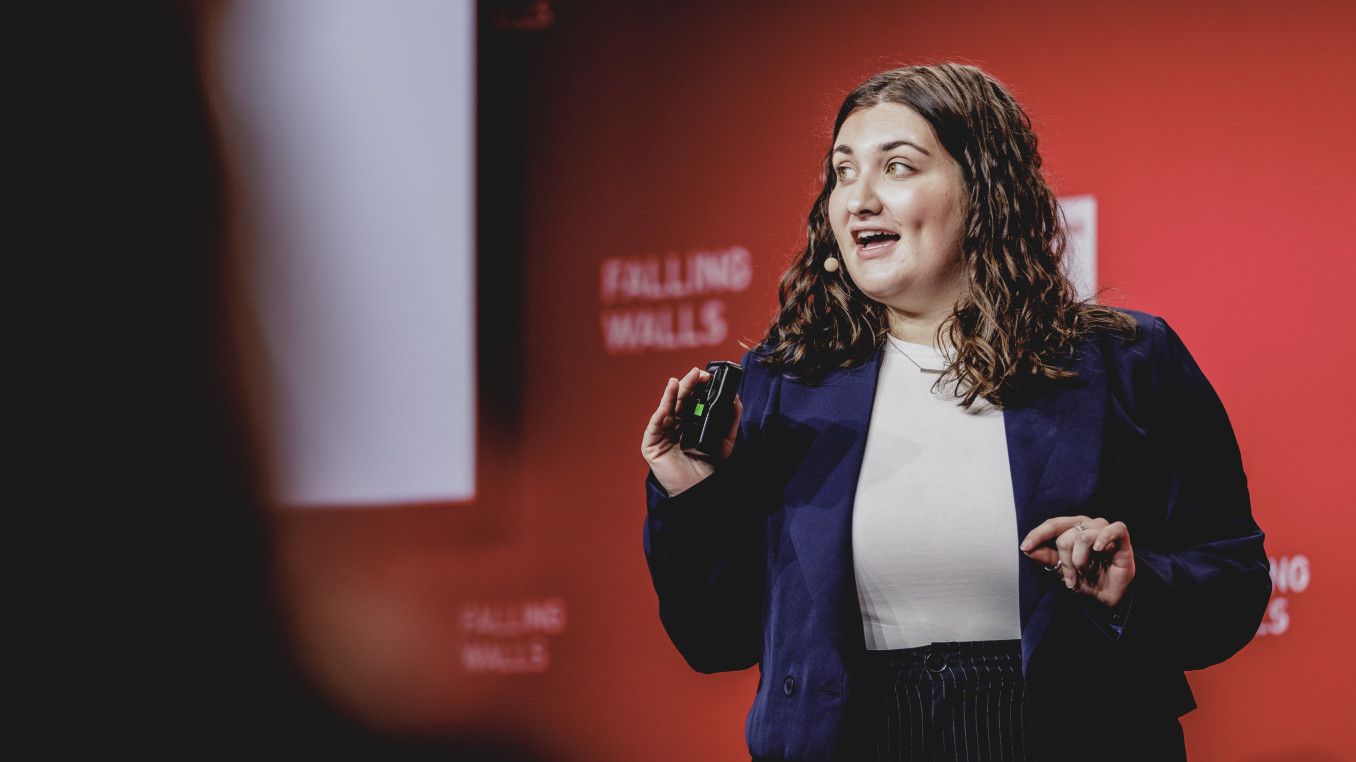Breaking the Wall of Humanitarian Action
Breaking the Wall of Humanitarian Action
Global Call 2025 Finalist Interview: Social Sciences & Humanities
Emmanuel Letouzé is the Director of Data-Pop Alliance, a global non-profit that he co-founded in 2013 with institutes at Harvard and MIT. The Alliance uses data and AI to promote human development and humanitarian action in LAC, Sub-Saharan Africa, the MENA region and Asia. He also co-founded the OPAL initiative and teaches courses in data and technology as an Adjunct Faculty at Columbia, Sciences Po and ESADE. He holds graduate degrees from Sciences Po and Columbia and a PhD from UC Berkeley.
Which wall does your research or project break?
Fundamentally, OPAL4HA breaks the wall between data and impacts in crisis settings.
It starts from the realisation that most suffering stems from bad measures: bad or no metrics and insights, or no or bad decisions and interventions; often both. It follows with the conviction that with data, tech and AI combined with human ingenuity and will, the causal chain from data to impacts can and must be fixed.
In countries like Senegal, floods disrupt livelihoods, displace communities and overwhelm already fragile healthcare, education and social protection systems. Yet, efforts to respond often fall short because of disjointed data sources, a lack of actionable insights to inform both urgent interventions and long-term planning and weak coordination mechanisms.
OPAL4HA breaks this barrier by offering an integrated end-to-end system around four key modules:
(1) OPAL ASSESS: where diverse datasets (satellite imagery, telecom operators' data, satellite imagery, censuses, surveys and local feedback), are aggregated and analysed to yield insights with human expertise
2) OPAL DECIDE: where AI tools and human support help make appropriate decisions, considering various options and trade-offs dynamically
3) OPAL INTERVENE: where actions are implemented, be they sending cash through Smart Contracts, coordinating aid delivery or starting a communication campaign (e.g. asking people to evacuate), overseen by public officials
4) OPAL EVALUATE: where the impacts of these actions are assessed and fed into OPAL ASSESS for accountability and continuous improvement
OPAL breaks the wall between data and impacts by cracking its four parts: (1) weaknesses in each of these links in the causal chain, (2) disconnections between them, (3) lack of synergies between data and AI tools and human expertise and (4) gaps between officials and communities.
It creates a dynamic platform where responders, policymakers and communities can make and implement timely evidence-based decisions. The platform connects early warning signals with targeted interventions and builds a feedback loop for continuous adjustment. It moves beyond traditional top-down emergency response models: through community engagement and stakeholder-informed design, OPAL4HA ensures that the needs and voices of affected populations are embedded into both the technology and the decisions it supports. This local grounding makes the system adaptable, scalable and responsive to the realities of crisis-affected areas.
Its novelty and potential were recently recognized by Mercy Corp Ventures, which selected OPAL as the 2025 Winner of a $100,000 Anticipatory Action grant, calling it "truly groundbreaking”.
What is the main goal of your research or project?
The main goal of OPAL4HA is to “Make Measures Matter” against climate-induced shocks and stressors through a dedicated and deliberate initiative combining the best of tech and the best of humans. This means: building a system that can yield the best available indicators and insights (measures in the quantitative sense) and facilitating decision-making and actual interventions (measures in the policy sense) on their evidence. Another way to put it is that in the future, it aims to remove most rational excuses to inactions or bad actions in the face of such shocks and hazards.
It implies building a robust, end-to-end modular system that enables faster, better and more coordinated actions to mitigate the impacts of climate-induced disasters, starting with floods in Senegal. In a region where weather extremes are increasing in frequency and intensity, the project aims to provide governments, humanitarian agencies and communities with the tools they need to act proactively and effectively.
At its core, OPAL4HA combines advanced analytics with participatory design to identify risk, guide interventions and evaluate outcomes. The platform integrates various sources of data (such as call detail records (CDRs), satellite imagery and field data) into a modular system that supports assessment, decision-making, intervention management and evaluation. By using this approach, the project moves beyond information collection toward intelligent response planning and continuous monitoring.
In Senegal, OPAL4HA has been piloted to address the growing threat of seasonal floods. The system supports everything from mapping at-risk populations and infrastructure to simulating intervention scenarios and automating parts of emergency response, such as Smart Contracts -enabled cash transfers. In parallel, DPA has worked closely with local stakeholders, government and civil society partners to ensure the platform aligns with national priorities and real community needs.
The long-term vision of OPAL4HA is not just to improve emergency response but to foster more resilient systems placing communities in the loop. By linking short-term crisis mitigation with longer-term development strategies, the platform contributes to a more adaptive approach to climate resilience. Its design is also scalable, providing a model for other countries facing similar risks and data coordination challenges.
Ultimately, OPAL4HA’s goal is to make actionable, evidence-based decision-making a standard part of how societies prepare for and respond to climate crises, bridging the gap between high-level data systems and local realities.
What advice would you give to young scientists or students interested in pursuing a career in research, or to your younger self starting in science?
To young scientists, I would offer the following advice:
First, aim to make a positive impact during the very short time you have on this small planet. Aim to make the most of it. Aim to be proud of what you do. Find what makes you angry and what you want to fight or fix, productively. Find the best way you can to achieve that.
Second, let complexity guide your curiosity but let impact guide your work. The world does not just need more theories; it needs bold intentional experiments that solve real problems. That means embracing uncertainty, working across disciplines and listening deeply to those most affected by the challenges you hope to address.
In the case of OPAL4HA, the inspiration came not from a textbook alone but from witnessing the disconnect between the wealth of data, tech and knowledge in the world and the absence or poor quality of the insights and interventions that shape it. Flood victims in Senegal didn’t need abstract models; they needed systems that could predict, prepare and respond to crises in real time. The project only became viable when technical innovations met human insights and will.
Third, be consistent, resilient, determined, humble; listen, work hard and keep at it. Research is not a straight path. You will often find yourself outside your comfort zone, working in languages you do not speak (learn languages!), disciplines you have not mastered or places you do not understand. You will fail. That’s good. It means your work is touching the edges of what’s known and needed. This is how you improve if you are smart and humble enough to learn.
Fourth, do not ever underestimate the power of collaboration, connections, friendships and trust for your career and impact. As a young researcher, seek out mentors, peers and communities who challenge and support you in equal measure. Be authentic. Be trustworthy. Never ever break your word (except when circumstances are beyond your control). We are social animals; we help and seek help from people we trust. It takes years to build trust and seconds to break it irremediably. My career was built thanks to dozens of people who lent me their trust.
Finally; think of what you would like to see in 50 years. What impact do you want to have had? Would you be proud of what you have done? Think long term.
What inspired you to be in the profession you are today?
I was lucky as a child, teenager and young adult to live abroad and travel to many places (e.g., Iraq in 1988 after the Iran-Iraq conflict, USSR in 1986...then Mauritania, Senegal, Vietnam...) where I saw deep inequalities, injustices and poverty. I was good at school, and I thought I ought to try and contribute to improving the world. I had the chance to meet inspiring mentors along the way.
What impact does your research or project have on society?
I would say, humbly, that I have been one of the first individuals to argue for and show how new data and tech (later, AI) could be harnessed concretely in positive ways, spanning and connecting very different disciplines, themes and approaches. One of the most rewarding and measurable impacts (vs. the impacts one may have on global injustice...) is having younger scientists telling me in person or online that I have played an important role in their choices. But the bigger impact is yet to come; with OPAL I think we can help revolutionise how complex decisions are made and implemented.
What is one surprising fact about your research or project that people might not know?
Many people who know or follow me are aware that I also draw political cartoons and use cartoons in my work. However, what they may not know is that I also 'think' as a cartoonist in my work as a researcher: I use drawing and visuals (loops, diagrams...) because that is the most effective way I can both form and express my thoughts. I think in terms of storylines, connections between themes or stories, plays on words, captions and what 'angers me', etc., in my personal and professional life.
What’s the most exciting moment you've experienced over the course of your research or project?
Having OPAL4HA be selected by the World Food Programme's Accelerator last time was a big high as was winning the Mercy Corp $100,000 grant against more than 200 other projects from over 60 countries (this will be announced officially in late August). But real excitement for me is found in forming partnerships with people like the CEO of Jokalante, Ndeye Amy Kébé, for the Mercy Corp application; hearing her hopes for the project and gaining her trust.

